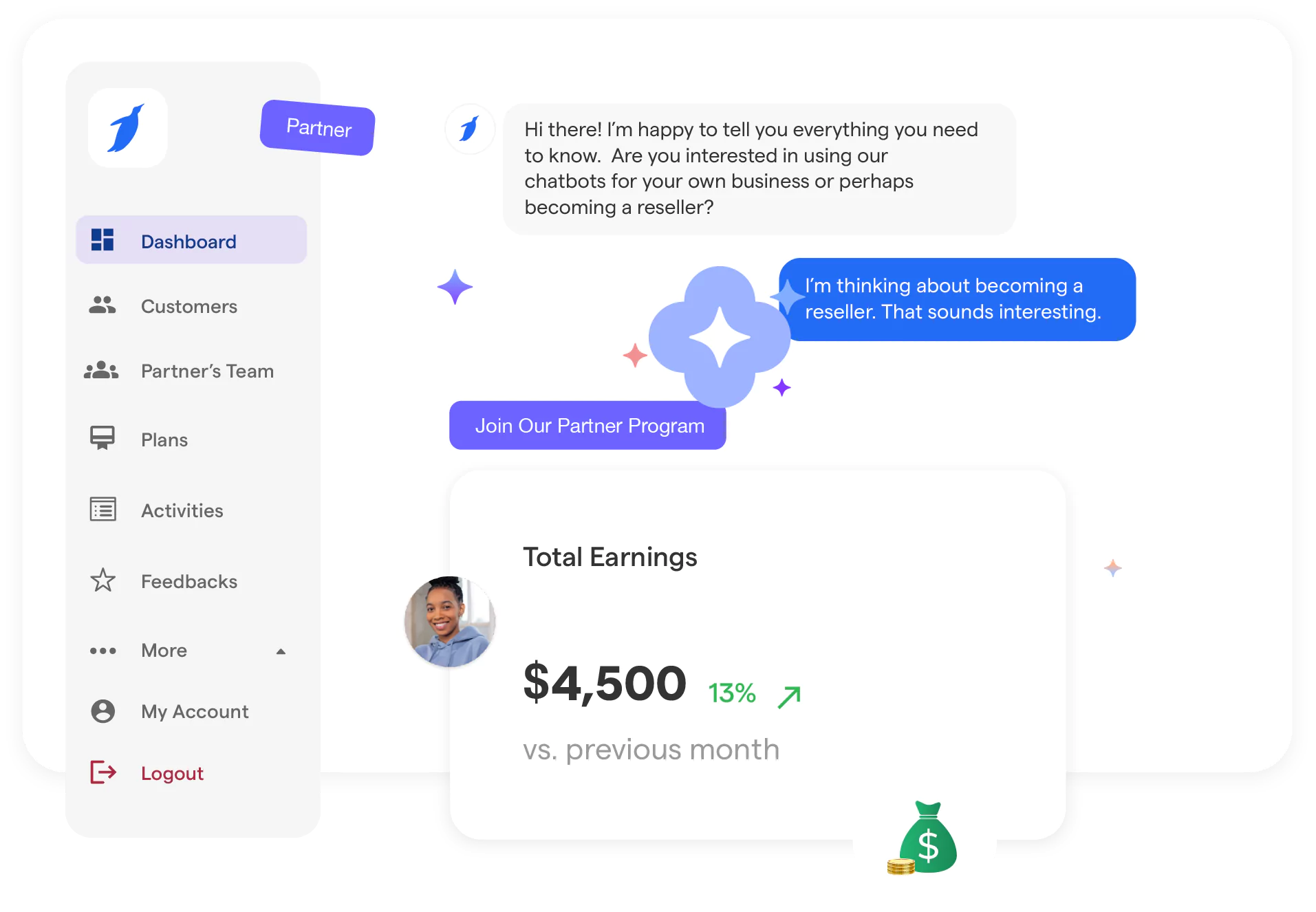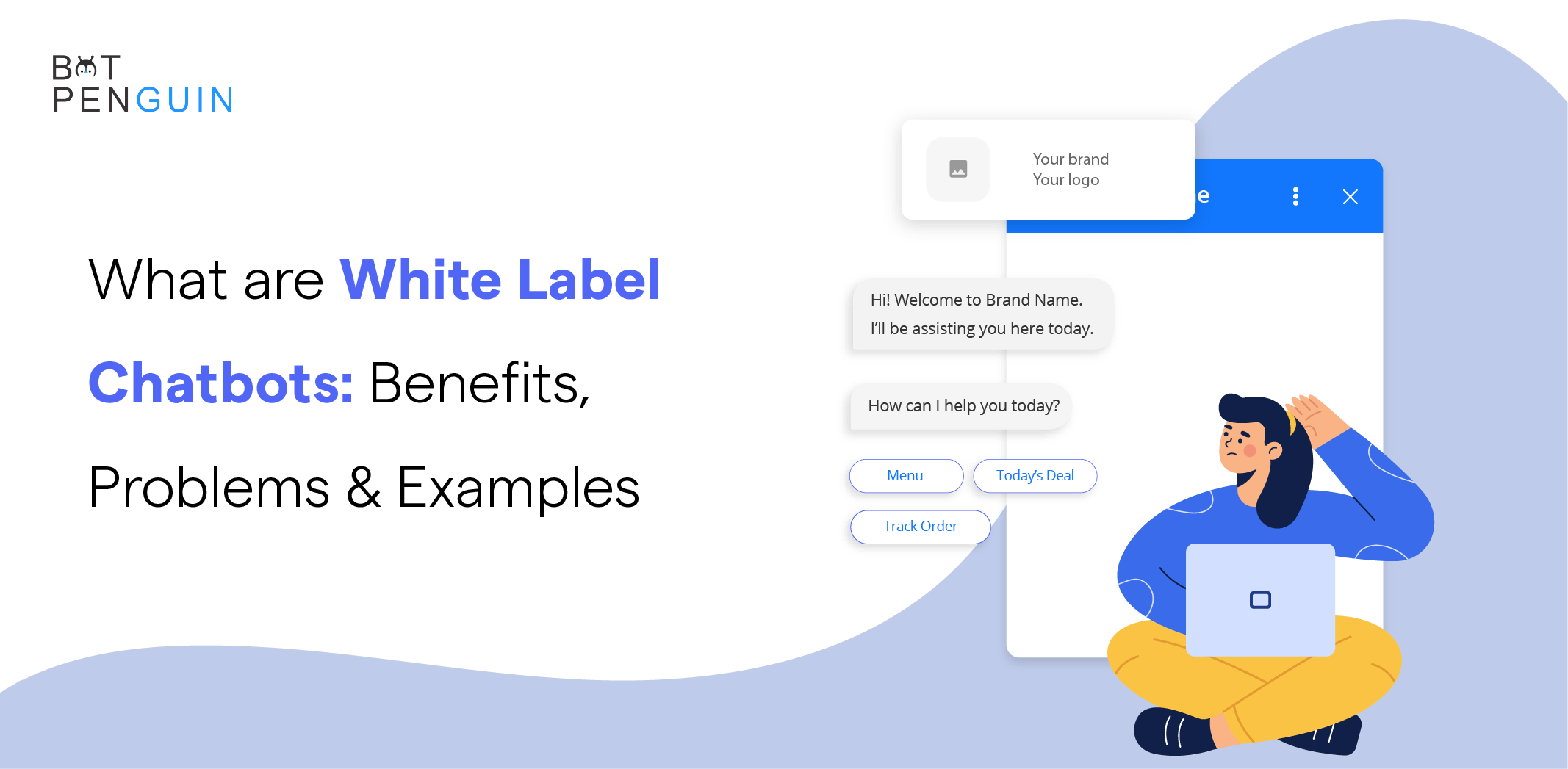More than 80% of today’s brands rebrand, reposition, and resell products they didn’t create.
White labeling isn’t just common—it’s become a core growth strategy across industries. From skincare lines to SaaS platforms, businesses are skipping the complexities of development and focusing instead on branding and distribution.
If you’re already familiar with how white label models work, the key question now is: which opportunity is worth your time?
This guide breaks down the most viable white label business opportunities available today. We’ll cover both product-based and software-based options, and share tips to help you choose the right path and launch with confidence.
Why White Label Business Opportunities Are Popular
At its core, a white label business lets you sell products or software made by someone else, but under your own brand. You don’t handle development or manufacturing. Instead, you focus on marketing, sales, and building customer trust.
This simple setup has made white labeling a go-to strategy for many entrepreneurs and businesses. Here’s why it continues to grow in popularity:
- Low Startup Costs: You don’t need to invest in product development or infrastructure. That lowers the financial barrier to entry and reduces risk.
- Easier to Launch & Market: Since products and software are ready-made, you can launch your brand quickly. No long development cycles or delays.
- Customizable Branding and Marketing: You control how the product is presented, allowing you to build a unique brand without technical hassles.
- Wide Range of Options: From physical goods to digital tools, the variety of white label business opportunities lets you pick what suits your skills and market.
- Scalability: Many white label products and software come with support and updates from the original creator, freeing you to focus on growing sales.
- Access to Free or Low-Cost Trials: Many providers let you explore their platform or product at little to no cost, making it easier to validate the white label business opportunity before investing fully.
- Flexibility for Different Business Models: Whether you run an agency, an e-commerce store, or a consulting business, white labeling can fit seamlessly into your existing setup.
- Recurring Revenue Potential: Especially with software, subscription models allow steady, predictable income, unlike one-time product sales.
- Reduced Operational Complexity: You avoid manufacturing, inventory, or complex software development, letting you keep operations simple.
With so many benefits, it’s clear why this model continues to attract attention. The next step is knowing which opportunities have the most potential. It can make all the difference when starting out or scaling up.
That’s why the next section dives into the most promising white label business opportunities you can explore now.
12 Best White Label Business Opportunities
White label business opportunities cover a wide range of products and software. Each comes with its own setup needs, profit potential, and target market. Choosing the right niche is key to building a successful brand without starting from scratch.
This section highlights 20 of the best options to explore in 2025.
These opportunities offer clear ways to customize, brand, and grow your business with lower risk and faster launch times. Whether you prefer physical goods or digital tools, there’s something here to fit your goals.
1. AI Chatbot Software
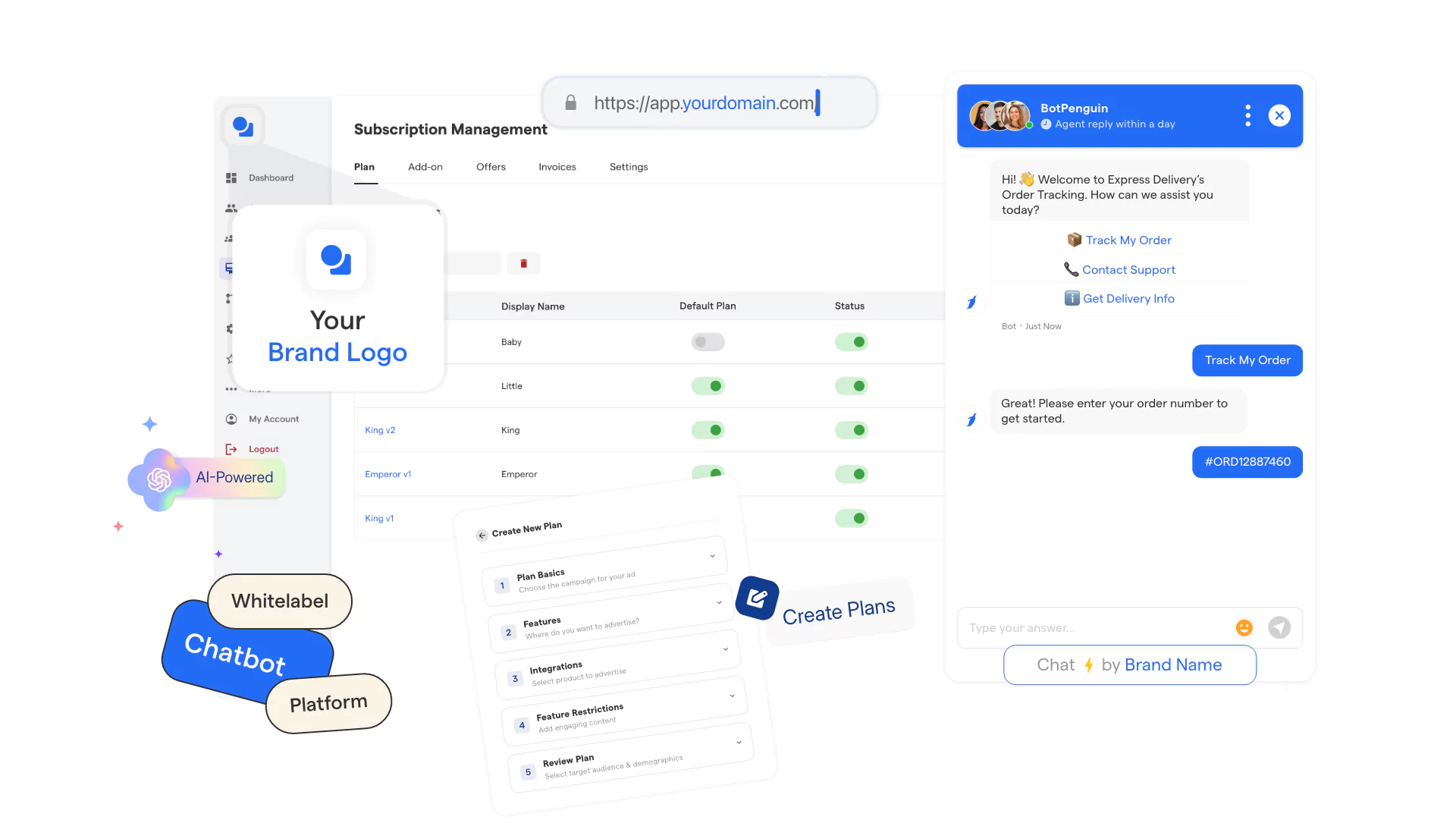
AI chatbot software lets businesses automate conversations on websites, messaging apps, or social media using natural language processing. These chatbots can answer questions, qualify leads, book appointments, and handle customer support—all without human help.
In a white label setup, you don’t build the chatbot technology yourself. Instead, you handle client onboarding, customize chatbot flows, apply branding, and provide ongoing support. The original provider manages the core AI and integrations behind the scenes.
Most white label AI chatbot platforms require little to no coding, making this business accessible to:
- Marketing agencies
- Consultants
- Freelancers
- Small business owners
By managing client relationships and delivering a ready-to-use, branded chatbot service, you tap into a high-demand market.
This setup offers a smart balance of simplicity, profit potential, and flexibility, placing AI chatbots among the top white label online business opportunities today.
Cost & Profit Potential
Startup costs depend on the provider. Some plans start under $200/month, while others charge per client. Since chat automation delivers value, profit margins can reach 70–80%, especially when bundled with extra services.
Target Clients & Outreach
Almost every industry can benefit—real estate, e-commerce, healthcare, coaching, finance, and education. Ideal clients are service-heavy businesses that need faster response times or better lead conversion.
Client acquisition strategies include:
- LinkedIn outreach using job titles like “Marketing Head” or “Sales Lead”
- Cold emails with specific chatbot use case pitches
- Partnering with web and marketing agencies that don’t offer chatbot services
Reselling Revenue Model
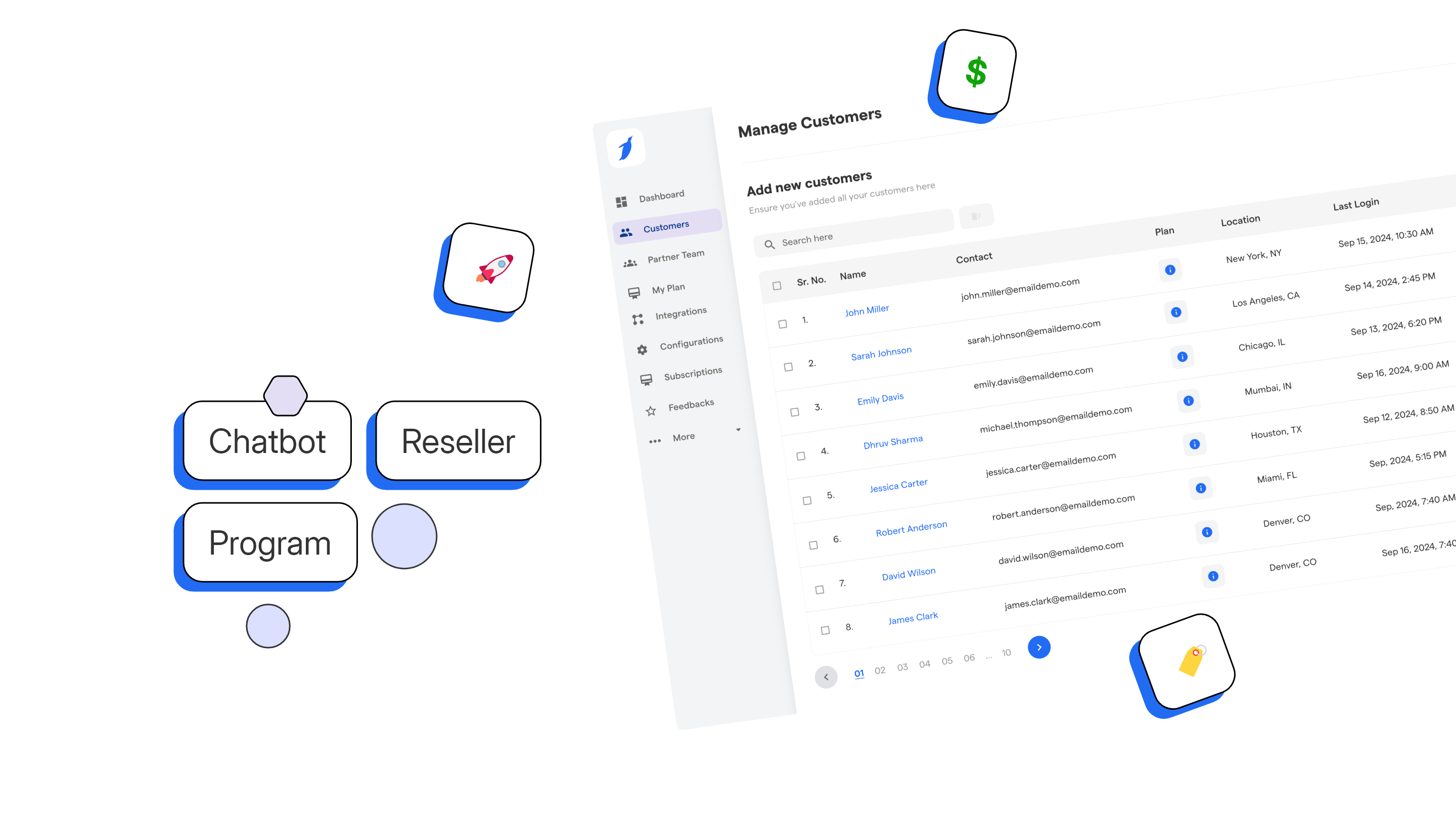
Common models include monthly retainers, tiered plans based on features or usage, and one-time setup fees. Some platforms also offer per-lead or per-conversation billing.
Recommended Platforms
Look for solutions that support:
- Full white label branding and client dashboards
- No-code customization and team collaboration
- Integrations with CRM and email marketing tools
A quick tip: Many platforms claim to be white label, but often just allow logo replacement. Make sure the platform offers a complete reselling ecosystem, which means a dedicated client dashboard, domain rebranding, custom sign-up pages, control over user data, custom pricing, a range of payment gateways, and full reseller control before onboarding.
Popular platforms include Botpenguin, Robofy, ChipBot, Stammer.ai, and Botscrew.
AI chatbot solutions are in demand across industries. That makes this one of the best white label business opportunities today. It’s scalable, high-margin, and simple to launch—especially if you’re focused on automation-first industries.
2. Social Media Scheduling & Analytics Tools
Social media scheduling and analytics tools help businesses plan, publish, and track content across multiple platforms from one centralized dashboard.
As a white label online business opportunity, you focus on onboarding clients, customizing the platform, and guiding their content strategies.
This opportunity requires minimal technical expertise, making it a great fit for:
- Social media managers expanding their toolkit
- Marketing agencies adding scheduling services
- Freelancers supporting multiple client accounts
- Creators providing done-for-you content solutions
This combination of ease and demand positions social media scheduling and analytics tools as one of the best white label software business opportunities for recurring revenue and client retention.
Cost & Profit Potential
Startup plans range from $50 to $150/month, depending on the features. Many platforms offer tiered pricing based on users or brands. Margins of 60–75% are common when you add strategy, posting support, or performance audits.
Target Clients & Outreach
Best-fit clients include solopreneurs, local businesses, influencers, and marketing teams without dedicated tools.
To reach them:
- Pitch your tool as a done-for-you content management solution
- Use LinkedIn filters to find social media managers at small brands
- Send DMs or cold emails offering trial access or social audits
Reselling Revenue Model
Most resellers charge a monthly fee per brand or client. You can also bundle in add-on services like reporting, post creation, or engagement tracking.
Some offer tiered packages based on the number of users or platforms managed, which makes it easy to upsell as client needs grow.
Recommended Platforms
Choose tools that offer:
- Full dashboard rebranding and client portals
- Automated reports and multi-account scheduling
- Collaborative workflows for agency use
Top options include SocialPilot, PromoRepublic, Sendible, and Cloud Campaign
Social media never sleeps, and neither do content calendars. That’s why scheduling and analytics tools are one of the most sustainable white label software business opportunities today—ideal for recurring income and easy scaling.
3. Email Marketing Platforms
Email marketing platforms automate outreach and customer engagement for businesses of all sizes.
As a white label reseller, your role is to handle client onboarding, customize email templates, and advise on campaign strategies, while the software runs behind the scenes.
This business is especially suited for those who want to offer email automation services without developing the software themselves. It requires minimal technical skills and offers strong potential for recurring revenue.
Ideal candidates for starting this white label business opportunity include:
- Marketing agencies looking to expand service offerings
- Freelancers specializing in digital marketing
- Consultants aiming to provide automated email solutions
- Small businesses seeking new revenue streams
This makes email marketing platforms a highly accessible and scalable white label business opportunity for service providers focused on client growth and retention.
Cost & Profit Potential
Entry-level plans usually start between $30 and $100 per month, depending on email volume and features.
Margins can reach 60–75% when combined with value-added services like campaign setup, list management, and strategy consulting.
Target Clients & Outreach
Ideal clients include e-commerce brands, coaches, local businesses, and SaaS companies that depend on customer engagement.
To find them:
- Use LinkedIn to identify and reach out to marketing managers or small business owners
- Send personalized outreach emails offering free trials or audits
Reselling Revenue Model
Most resellers charge monthly fees based on email volume or subscriber count. You can also offer tiered packages, including add-ons like automated sequences, segmentation, and reporting.
Recommended Platforms
Look for platforms with:
- Full white label capabilities
- Strong automation features
- Advanced analytics and reporting
Popular choices include Sendinblue, ActiveCampaign, and MailerLite.
Email marketing remains a high-ROI channel, making it a lucrative and scalable white label online business opportunity for agencies and freelancers aiming to expand their digital service offerings.
4. Personalized Apparel & Merchandise
In this white label product business opportunity, you partner with suppliers or print-on-demand services that handle production and fulfillment. Your role focuses on designing, branding, and marketing the products under your own label.
Most platforms require minimal technical skills, making this ideal for creative entrepreneurs, small agencies, or influencers looking to monetize their audience.
Ideal people to start this business include:
- Graphic designers
- Influencers and content creators
- Boutique owners
- Marketing agencies expanding into merchandising
Cost & Profit Potential
Startup costs vary based on the platform and product range, often starting as low as $50/month or pay-per-order.
Profit margins can range from 30% to 70%, depending on pricing strategy and customization options.
Target Clients & Outreach
Great client niches include local businesses, event organizers, clubs, schools, and online influencers who want branded merchandise.
Outreach methods include:
- Collaborations with local businesses
- Social media marketing targeting niche communities
Reselling Revenue Model
You can charge markups on product prices or offer custom package deals, including design and marketing services.
Subscription boxes or limited-edition collections can boost recurring sales.
Recommended Platforms
Look for platforms that offer:
- Full white label branding
- Integration with e-commerce stores
- Flexible product catalogs and easy order management
Popular choices include Printful, Printify, and Teelaunch.
Personalized merchandise remains a growing market as brands seek unique ways to connect with customers.
This white label products business opportunity combines creativity with scalability, perfect for those wanting a hands-on product-based venture without managing inventory.
5. White Label CRM Software
White label CRM (Customer Relationship Management) software helps businesses manage customer data, sales pipelines, and communication all in one place.
As a white label online business opportunity, you resell a ready-made CRM platform under your brand. The software provider handles development and maintenance, while you focus on onboarding clients, customization, and support.
Most white label CRM tools are user-friendly and require minimal technical skills, making this business suitable for:
- Marketing agencies
- Sales consultants
- IT service providers
- Business coaches
Cost & Profit Potential
Entry costs vary, typically between $50 and $200 per month depending on features and client count. Profit margins can reach 60–80%, especially when combined with value-added services like training or custom integrations.
Target Clients & Outreach
Ideal clients include small to medium-sized businesses, startups, and service providers who need efficient client management. Effective outreach tactics include:
- Networking with local business groups
- Using LinkedIn to connect with sales and marketing teams
Reselling Revenue Model
Most providers allow monthly subscription charges per client or tiered pricing based on usage.
Upselling through onboarding, customization, and ongoing support services helps increase revenue.
Recommended Platforms
When choosing white label CRM tools, look for:
- Full branding and client portal customization
- Integration with popular apps like email, calendars, and help desks
- Scalable user licenses and reporting features
Popular options include Zoho CRM, HubSpot (white label resellers), and Agile CRM.
White label CRM software offers a high-value solution for businesses looking to streamline customer management.
With low technical barriers and strong profit potential, it’s a solid choice among the best white label business opportunities today.
6. Website Builders for Agencies
White label website builders let agencies create, host, and manage client websites under their own brand without developing a custom tool from scratch.
The core platform provides drag-and-drop editors, templates, hosting, and analytics, while you focus on client management and delivery.
Most white label platforms are no-code, so you don’t need to be a developer. This makes it an ideal white label online business opportunity for:
- Web design agencies
- Freelancers
- Marketing consultants
- Branding studios
Cost & Profit Potential
Starter plans range from $30 to $100/month, depending on features and the number of sites.
Agencies typically charge clients $500–$3,000+ per site, with additional fees for hosting, updates, and SEO, leading to profit margins of 70% or higher.
Target Clients & Outreach
Target businesses without a modern or mobile-friendly website—local businesses, coaches, service professionals, and e-commerce stores. Outreach ideas include:
- Offering free website audits on social med
- Running local SEO or digital upgrade campaigns
Reselling Revenue Model
Most white label website builders offer multi-site plans, allowing agencies to resell hosting, templates, and maintenance packages.
Monthly retainers for maintenance or bundled digital services help create steady income.
Recommended Platforms
Look for website builders that provide:
- Full branding (logos, domains, dashboards)
- Client access control and collaboration
- SEO tools, integrations, and analytics
Top platforms in this category include Duda, Brizy Cloud, and Weblium.
With growing demand for professional websites, white label software business opportunities like this allow agencies to scale efficiently without hiring developers or managing servers.
It’s a perfect add-on for digital service providers aiming to boost revenue while delivering great value.
7. Pet Care Products
White label pet care products include grooming items, supplements, treats, toys, and accessories—manufactured by third-party suppliers and rebranded with your logo.
As a reseller, you handle the branding, packaging design, and customer outreach while the backend (formulation, production, shipping) is managed by the supplier.
This model doesn’t require prior experience in pet care or manufacturing. It’s a great white label business opportunity for:
- Pet influencers
- Pet store owners
- Niche eCommerce entrepreneurs
- Veterinary professionals or groomers
Cost & Profit Potential
Startup costs are relatively low, often under $500 for initial inventory or sample kits. Margins typically range from 40–60% depending on the supplier, branding depth, and shipping strategy.
Products like calming treats or organic shampoos allow for premium pricing.
Target Clients & Outreach
Target pet owners who seek premium, organic, or specialized care items. Popular segments include dog and cat owners, senior pet households, and owners of allergy-prone pets.
Reach them through:
- Pet care communities on Instagram, Reddit, or Facebook
- Collaborations with vets, trainers, or groomers
- SEO-optimized product blogs or pet care newsletters
Reselling Revenue Model
You can sell via your own eCommerce store, pet-focused marketplaces, or subscription boxes. Add-on upsells like bundles, limited editions, or seasonal products help boost cart value and retention.
Recommended Platforms
When choosing a supplier, look for:
- Custom label options with low minimum order quantities
- Dropshipping capabilities or fulfillment support
- Compliance with pet safety and ingredient standards
Popular suppliers include Petventures, PureEarth Pets, and Printful (for pet accessories).
With global pet spending on the rise, white label products business opportunities in the pet niche offer consistent demand, emotional brand loyalty, and room to build a passionate community—making it a fun and profitable venture to explore.
8. Landing Page & Funnel Builders
These tools allow users to build high-converting landing pages and marketing funnels without coding.
In a white label setup, the software provider handles the infrastructure and features (drag-and-drop builder, form integrations, A/B testing), while you brand it as your own and offer it to clients.
Most platforms are beginner-friendly and don’t require development experience. This makes it one of the best white label business opportunities for:
- Digital marketing consultants
- Ad agencies
- Funnel strategists
- Freelancers in lead generation
Cost & Profit Potential
Initial costs range from $79 to $300/month, depending on platform features and user tiers. Resellers often charge clients $100–$500/month for setup, hosting, and optimization services.
Profit margins can reach 70%, especially if paired with design or ad services.
Target Clients & Outreach
The most common users are coaches, e-commerce stores, SaaS startups, and local service providers who need fast, conversion-focused pages.
Outreach strategies include:
- Offering free funnel audits or demo builds
- Partnering with Facebook Ads freelancers who need reliable funnel tools
- Cold outreach via LinkedIn or email targeting business owners running ads
Reselling Revenue Model
You can charge per funnel build, monthly access fees, or bundle services like copywriting and lead tracking.
Many resellers also create tiered packages based on the number of landing pages, integrations, or traffic limits—ideal for upselling.
Recommended Platforms
When selecting a provider, prioritize:
- Custom domain support and full branding options
- Analytics dashboards and third-party integrations
- Scalability to support multiple clients or agencies
Popular white label platforms include Systeme.io, Simvoly, and Converdy.
With online lead generation more critical than ever, white label software business opportunities like funnel builders offer agencies a powerful product to sell, backed by demand, recurring revenue, and client reliance.
9. Fitness or Coaching Mobile Apps
These apps help coaches, trainers, and wellness professionals deliver structured programs, track progress, and engage clients through mobile. In a white label model, you don’t need to develop the app—you rebrand a pre-built platform with your client’s logo, color palette, and program materials.
Most white label platforms are no-code and easy to manage, even if you don’t have a tech background.
This white label business is ideal for:
- Fitness coaches
- Nutritionists
- Life and business coaches
- Personal trainers expanding online
Cost & Profit Potential
Startup pricing usually ranges from $49 to $200/month based on client seats and features.
Since professionals can charge anywhere from $30 to $300/month per user, resellers can enjoy profit margins of 60–80% when bundled with content or habit tracking features.
Target Clients & Outreach
The most interested buyers are solo fitness coaches, coaching agencies, yoga instructors, and online personal development trainers.
To reach them:
- Target Instagram or TikTok creators offering fitness/wellness tips
- Run ads offering “Your Own Coaching App in 7 Days”
- Use Facebook groups to promote bundled services
Reselling Revenue Model
Most agencies charge a setup fee and an ongoing monthly subscription. You can offer value-adds like in-app chat support, progress reports, or custom workout templates.
Many also bundle consultation or content management as part of higher-tier packages.
Recommended Platforms
When choosing a provider, look for:
- Custom branding and mobile app deployment under your client’s name
- Support for videos, habit tracking, and client messaging
- Built-in payment systems and CRM features
Top platforms include Trainerize, PT Distinction, and My PT Hub. These tools offer white label software business opportunities that help clients grow a digital fitness presence quickly, without the cost of app development.
With rising demand for remote coaching, this niche offers recurring revenue, high client retention, and cross-selling potential—perfect for entrepreneurs in health and wellness tech.
10. Health & Personal Care Items
This white label business opportunity involves reselling ready-made health and wellness products under your brand—think skincare, hair care, supplements, or hygiene essentials.
You work with a private label manufacturer who handles formulation, packaging, and delivery while you focus on branding, marketing, and customer experience.
No manufacturing knowledge is required. This business suits:
- Beauty and wellness influencers
- E-commerce entrepreneurs
- Health coaches building a product line
- Lifestyle brands expanding into products
Cost & Profit Potential
Initial costs can vary—some suppliers offer low minimum order quantities (MOQs), starting at just $300–$500.
Branded items like serums or vitamin packs often have profit margins of 50–70%, especially when paired with content marketing and premium positioning.
Target Clients & Outreach
Your main buyers include beauty-conscious consumers, eco-friendly shoppers, and health-focused audiences.
To reach them:
- Build an Instagram shop or influencer page to showcase results
- Use TikTok or Reels to demo products in action
- Run giveaways or wellness challenges with product bundles
Reselling Revenue Model
You can price per product, offer bundle deals, or run subscription boxes. Add-ons like gift packaging or loyalty programs also boost average order value.
Those who build niche lines (like vegan skincare or probiotic gummies) can easily upsell to specific segments.
Recommended Platforms
Look for partners that offer:
- FDA-compliant products with proven formulations
- Full branding, including custom labels and packaging
- Dropshipping or fulfillment options for scalability
Some popular white label providers in this space include NutraScience Labs, Onoxa, and BO International. These companies support scalable white label business models without inventory hassles.
The health and personal care industry continues to boom with consumer demand for personalized, clean, and science-backed products. It’s a strong entry point for brand builders seeking physical product income without setting up a lab.
11. Food Delivery or Restaurant Apps
White label food delivery or restaurant apps allow entrepreneurs to launch branded platforms similar to Swiggy or Uber Eats without building tech from scratch.
These apps come with features like menu listing, online ordering, GPS tracking, and payment integration—all pre-built by the provider. As a reseller, you focus on customizing the app’s branding, onboarding restaurant partners, and offering local support.
No coding is required, which makes this white label business opportunity ideal for:
- Local business consultants
- Digital marketers targeting food businesses
- Agency owners in small-town or tier-2/3 markets
- Entrepreneurs in regions underserved by big delivery apps
Cost & Profit Potential
Some platforms offer one-time licensing, while others run on monthly SaaS fees. Starting costs range between $500 to $2,000, depending on features.
With commission on orders, setup fees, and premium service add-ons, profit margins can reach 60–75%, especially in exclusive regional markets.
Target Clients & Outreach
Target independent restaurants, cloud kitchens, cafes, and small food chains looking to build their own ordering ecosystem.
To find and reach them:
- Attend local food business expos or networking events
- Run Facebook ads targeting restaurant owners in specific cities
- Offer free trials or demo walkthroughs to food entrepreneurs
Reselling Revenue Model
You can charge per restaurant setup, monthly maintenance fees, and commission on every order processed. Bundling marketing services like SEO for food menus or social media promos can create additional recurring income.
Recommended Platforms
Top white label food delivery platforms usually offer:
- Separate apps for users, restaurants, and delivery agents
- Custom branding, real-time tracking, and in-app chat
- Easy admin dashboards and Stripe/Razorpay integrations
Popular providers include Appkodes, Roamsoft, and RestroApp. These are designed for easy localization and quick deployment, supporting a scalable white label business model in the F&B space.
With more diners preferring direct ordering over third-party apps, local food delivery platforms are gaining ground. For entrepreneurs, it’s a growing niche with room to innovate, personalize, and scale.
12. Customer Support or Live Chat Software
White label customer support or live chat software helps businesses offer real-time assistance on websites or apps without building the software themselves. These platforms include live chat windows, canned responses, ticketing systems, and even AI-driven chat support.
As a white label provider, your job is to handle branding, client onboarding, training, and first-line support, while the core infrastructure is maintained by the original software company.
No heavy tech skills are required, making this white label business opportunity perfect for:
- Customer service consultants
- Digital agencies offering web development
- SaaS resellers looking to expand their offerings
- Freelancers targeting e-commerce and service brands
Cost & Profit Potential
Startup costs can range from $30 to $200/month, depending on features like multi-agent support or chatbot add-ons.
Businesses are willing to invest in customer service, so you can charge monthly retainers, setup fees, and per-agent access, making margins of 60–80% achievable.
Target Clients & Outreach
This works well for e-commerce brands, SaaS startups, real estate agencies, healthcare providers, and educational institutions.
You can reach potential clients through:
- Cold emailing SaaS founders or Shopify stores
- LinkedIn prospecting filtered by “customer support” tools
- Partnering with virtual assistant or call center agencies
Reselling Revenue Model
Most resellers use a per-agent, per-company, or tiered plan pricing model. You can also upsell managed support, chatbot setup, or knowledge base creation to boost recurring income.
Recommended Platforms
Look for white label providers that offer:
- Full UI rebranding and customizable chat widgets
- Omnichannel support (live chat, email, messenger)
- Integration with CRMs, helpdesks, and ticketing systems
Popular platforms include LiveAgent, Crisp, Tawk.to, and Helpwise. These solutions are built for scalability, making them ideal for a growing base of business clients.
With customer expectations higher than ever, businesses need real-time support to retain users and drive conversions. Offering this under your own brand can open up a high-demand, low-entry barrier market, making it a smart and sustainable white label software business.
How to Choose the Right White Label Business Opportunity
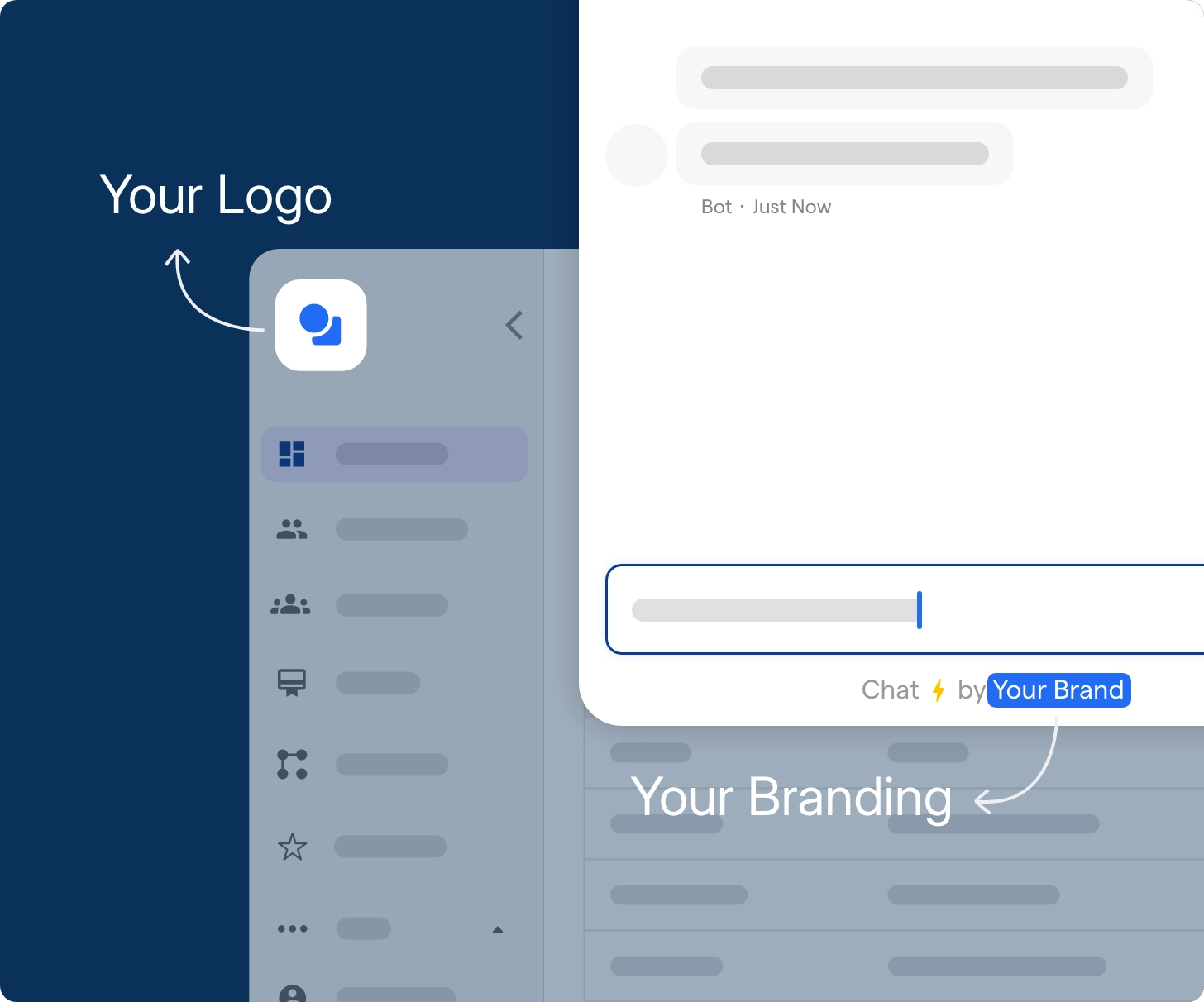
By now, it’s clear there’s no shortage of white label business opportunities—from AI tools to physical products. But not every model is right for everyone. Choosing the right fit comes down to alignment with your skills, interests, and long-term goals.
This section will help you filter through options and avoid jumping into a model that looks good on paper but doesn’t match your strengths or market realities.
Here’s what to consider before making your pick:
Match the Model to Your Skillset and Interests
Your background matters. If you're from a tech, marketing, or sales background, white label software opportunities like CRM tools or chatbot platforms might come naturally.
If you're more inclined toward creativity, lifestyle, or product design, white label product-based businesses, like apparel or wellness items, could feel more rewarding.
- For service-based thinkers: Look for tools where client onboarding, setup, or consulting is required.
- For creators or branders: Choose models where customization, packaging, and visual identity make a difference.
Working on something you understand and enjoy increases your odds of success—and makes the day-to-day much easier.
Study Market Demand and Industry Trends
Trends can be exciting, but they’re not always sustainable. Instead of jumping on what’s hot right now, take some time to understand what people actually need.
Start by observing what's happening around you. Are local businesses struggling with lead generation? Do creators you follow often complain about needing better design tools or easier automation?
- You don’t need deep SEO research—just pay attention to conversations online, in Facebook groups, forums, or even on LinkedIn.
- Use Reddit, Quora, or niche communities to see what tools or solutions people are actively searching for.
- Track recurring topics in your industry—if a problem keeps coming up, there's likely a strong market for solving it.
This kind of real-world input helps you find gaps where your white label business opportunity can fit in—and stay relevant. It also helps you avoid investing in a fading niche.
Always think long-term. What do people still need even if trends change? That’s the sweet spot.
Compare Product vs. Software-Based Models
Both have pros and cons. White label software business opportunities have higher upfront complexity, but better long-term margins and scalability.
Meanwhile, white labeled physical products are easier to brand and launch, but may require inventory management, quality checks, and logistics handling.
Choose what suits your workflow capacity and startup capital.
Test Waters with Free or Low-Cost Options
Before fully committing, explore free or low-cost white label options to test the waters and build confidence.
- These include freemium plans, limited branding, or trial client access.
- Another great approach is to request demo calls.
These calls give you a chance to ask detailed questions about branding options, reseller support, pricing flexibility, and technical requirements.
For example, BotPenguin offers a white label chatbot builder with easy onboarding and demo sessions that walk you through the platform’s features.
This hands-on experience helps you decide if it’s the right fit before committing.
Think About Scalability and Competition
Ask: Can this model grow with me?
Some niches may have low entry barriers but also high churn or intense price wars. Others—like specialized B2B tools—take longer to sell but offer better retention and upselling potential.
Look for long-term potential, not just quick wins.
Choosing the right white label model is less about hype and more about smart alignment. Focus on your strengths, research your market, and you’ll find the opportunity that fits your goals.
Tips to Launch Your White Label Business Successfully
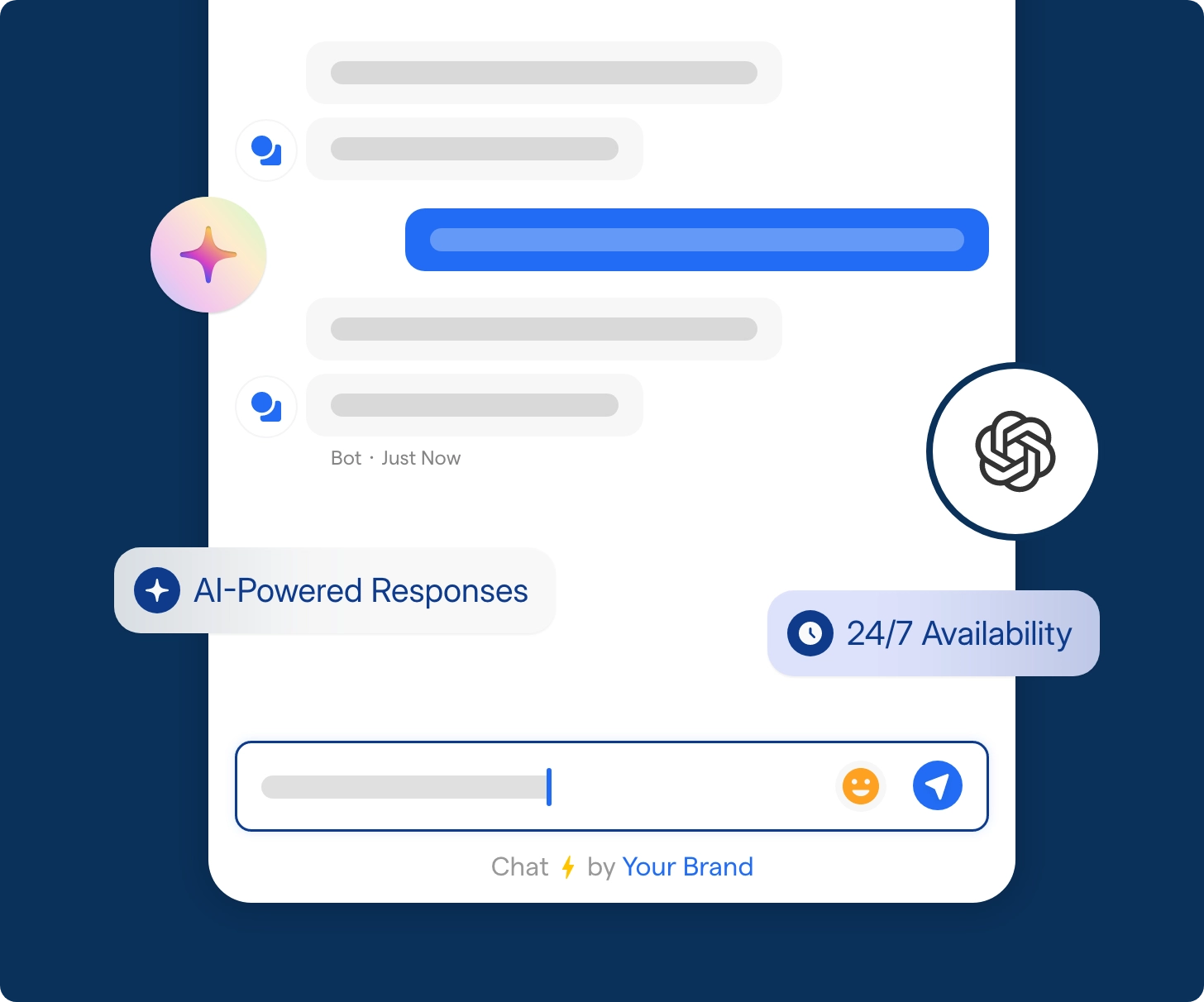
Starting your own free white label online business is an exciting step toward building a scalable income stream. But success depends on smart choices early on. This section covers practical tips to help you launch smoothly, minimize risks, and set a strong foundation for growth.
- Pick the Right Product or Tool: Focus on a profitable niche that matches your skills and market demand. Choose products or tools with proven demand and room for customization.
- Partner with Trusted Platforms: Work with reliable white label suppliers or software platforms that offer quality, support, and flexibility. This ensures you deliver a dependable experience to your clients.
- Build Simple Branding & Web Presence: Create a clear, professional brand identity and a user-friendly website. This builds trust and makes it easier for clients to find and engage with your services.
- Use Low-Cost Marketing to Validate: Test your business ideas with affordable marketing like social media ads, email outreach, or content marketing. This helps you understand what resonates before investing heavily.
- Offer Basic Support & Collect Feedback: Provide prompt, helpful support and actively gather user feedback. This early input guides improvements and strengthens client relationships.
By following these tips, you can launch your white label business with confidence and build momentum toward long-term success.
Conclusion
White label business opportunities in 2025 make starting or growing an online venture easier and lower-risk. By choosing the right niche and partnering with trusted white label platforms, you avoid building products from scratch.
This model suits entrepreneurs, agencies, and freelancers looking for steady revenue with minimal upfront costs. Whether it’s AI chatbots, social media tools, or custom merchandise, the potential is huge.
Start small, test your market, and scale smartly.
Ready to explore? Check out the recommended platforms in this blog and try out a white label solution that fits you. Bookmark this guide — visit anytime you need fresh ideas for your next business move!
Frequently Asked Questions (FAQs)
How do white label business opportunities work?
You partner with a provider who offers rebrandable products or software. You manage sales, client onboarding, and branding, and they take care of the tech and fulfillment.
How much profit can I make with white label businesses?
Profit margins often range from 50% to 80%, especially if you provide additional services like customization, training, or consulting, increasing your revenue potential beyond basic reselling.
Can white label businesses be run remotely?
Yes, white label businesses are mostly online and remote-friendly. You can manage clients globally, offering flexibility and scalability without location limits.
Are white label businesses legal?
Yes, white label reselling is legal with proper agreements. Ensure you have contracts with providers allowing you to rebrand and sell their products under your name.
Can I scale a white label business?
Yes, you can scale by adding more clients, offering extra services, or expanding into related niches. This makes white label businesses flexible and growth-friendly.
Is a white label business low risk?
Yes, it’s low risk since you don’t build products. Investment and tech risks are minimal, but success relies on effective sales and good customer support.

